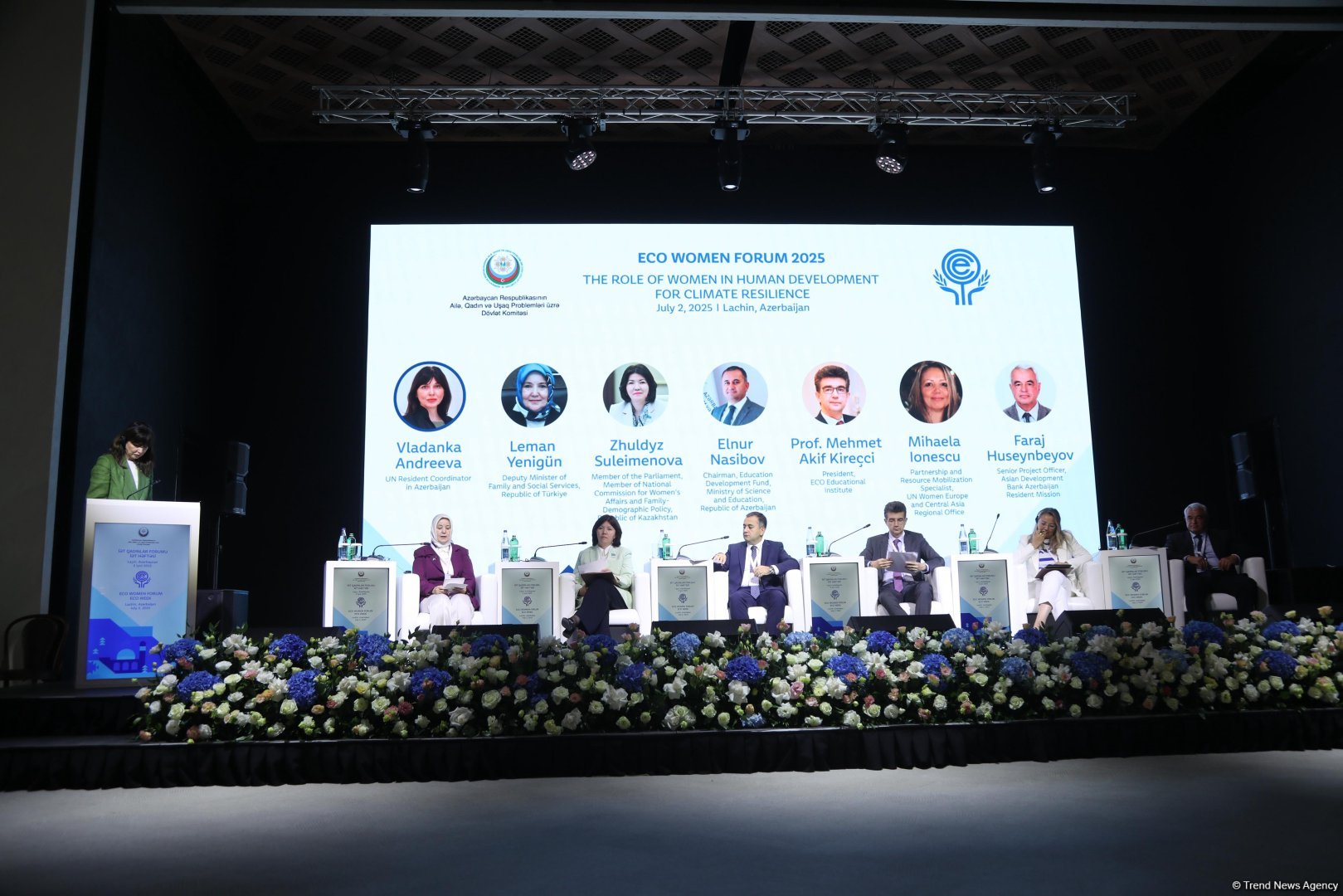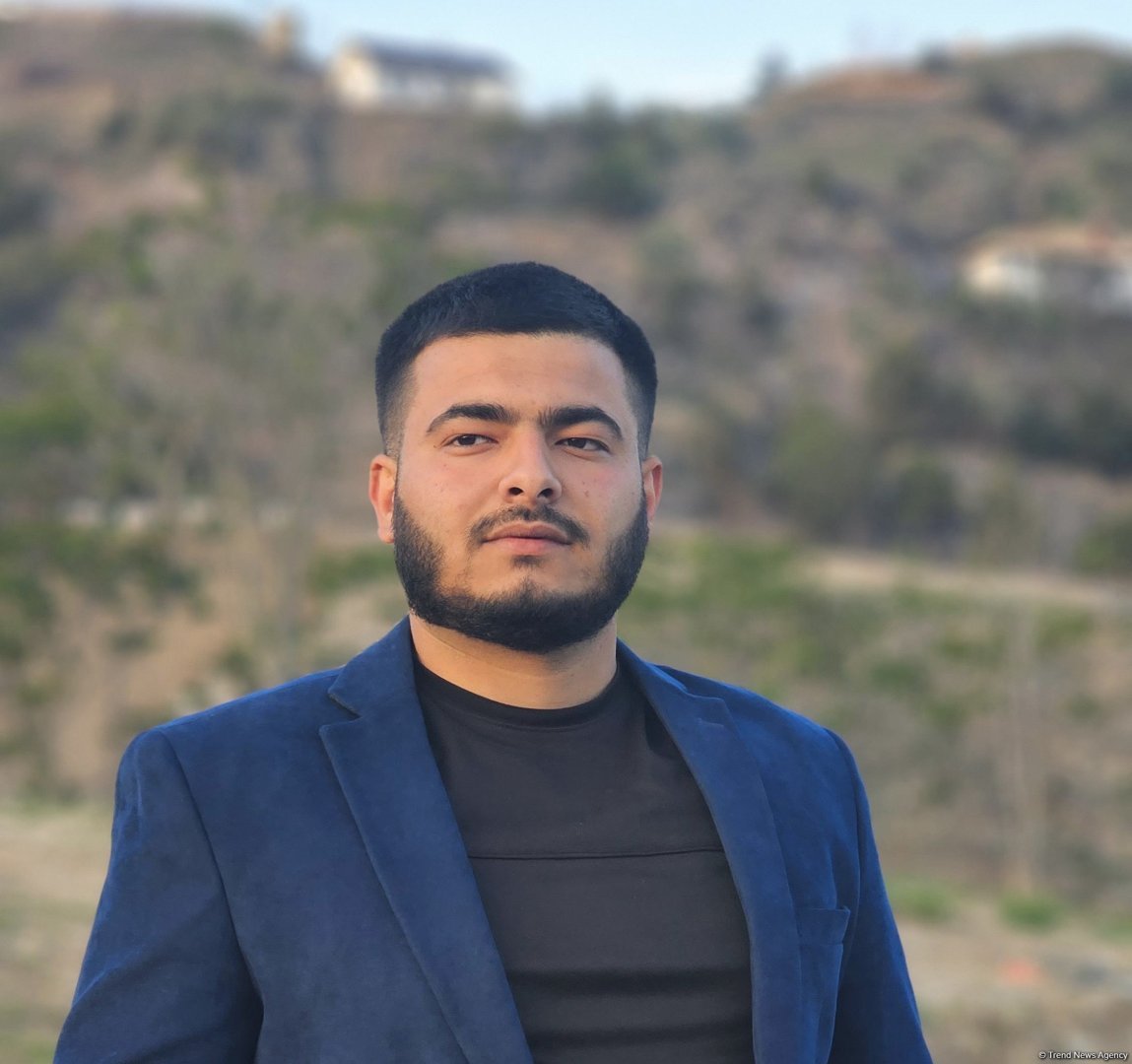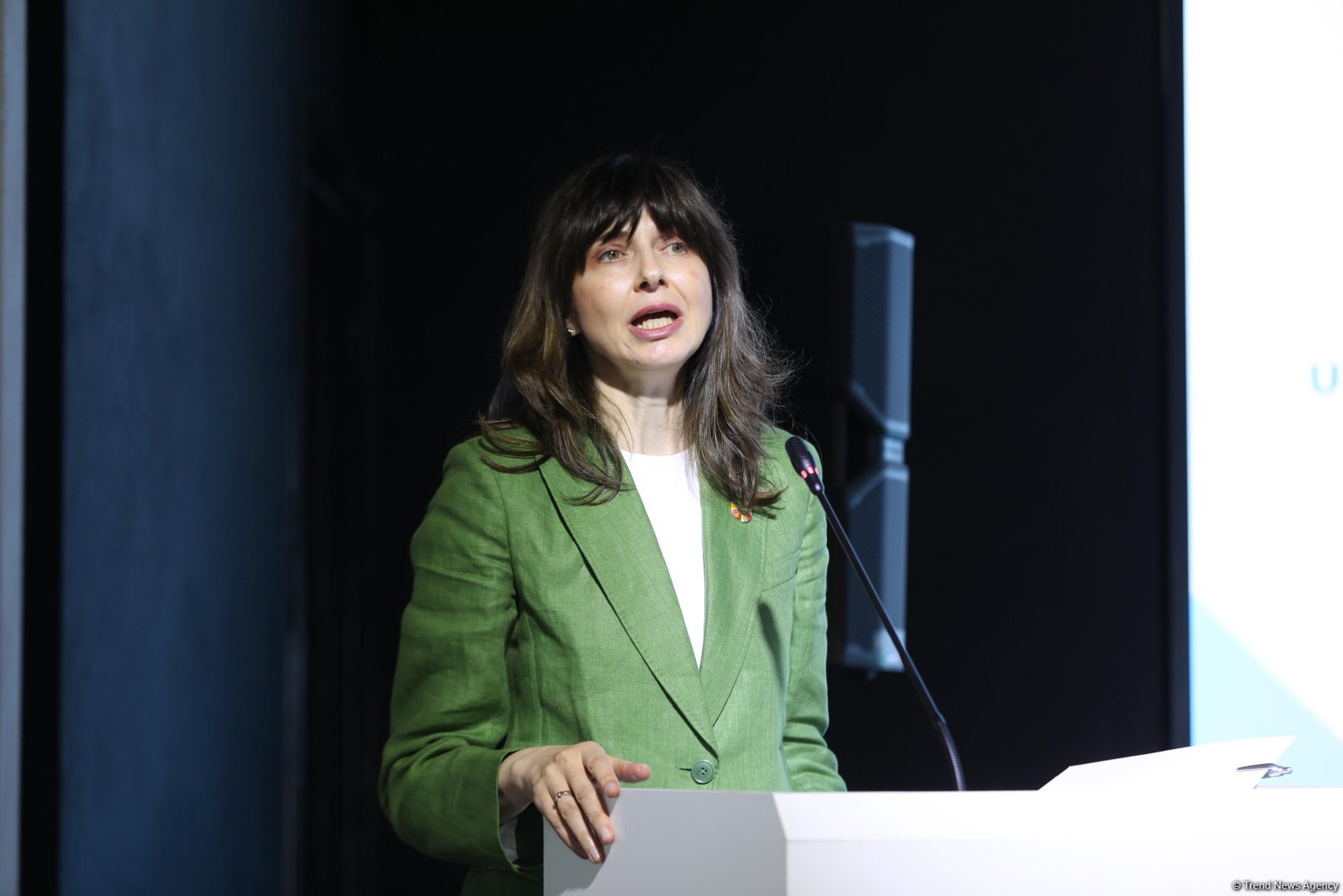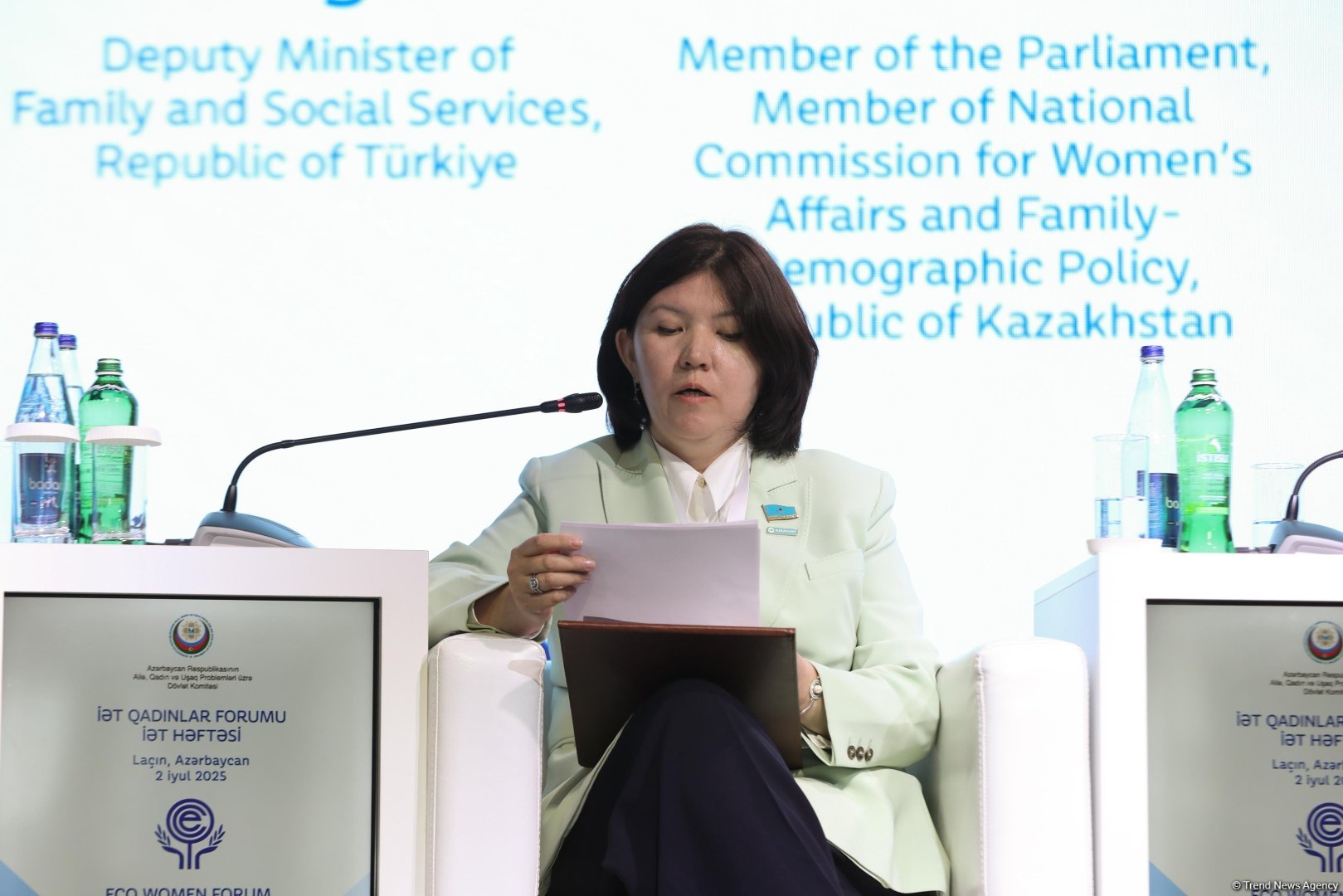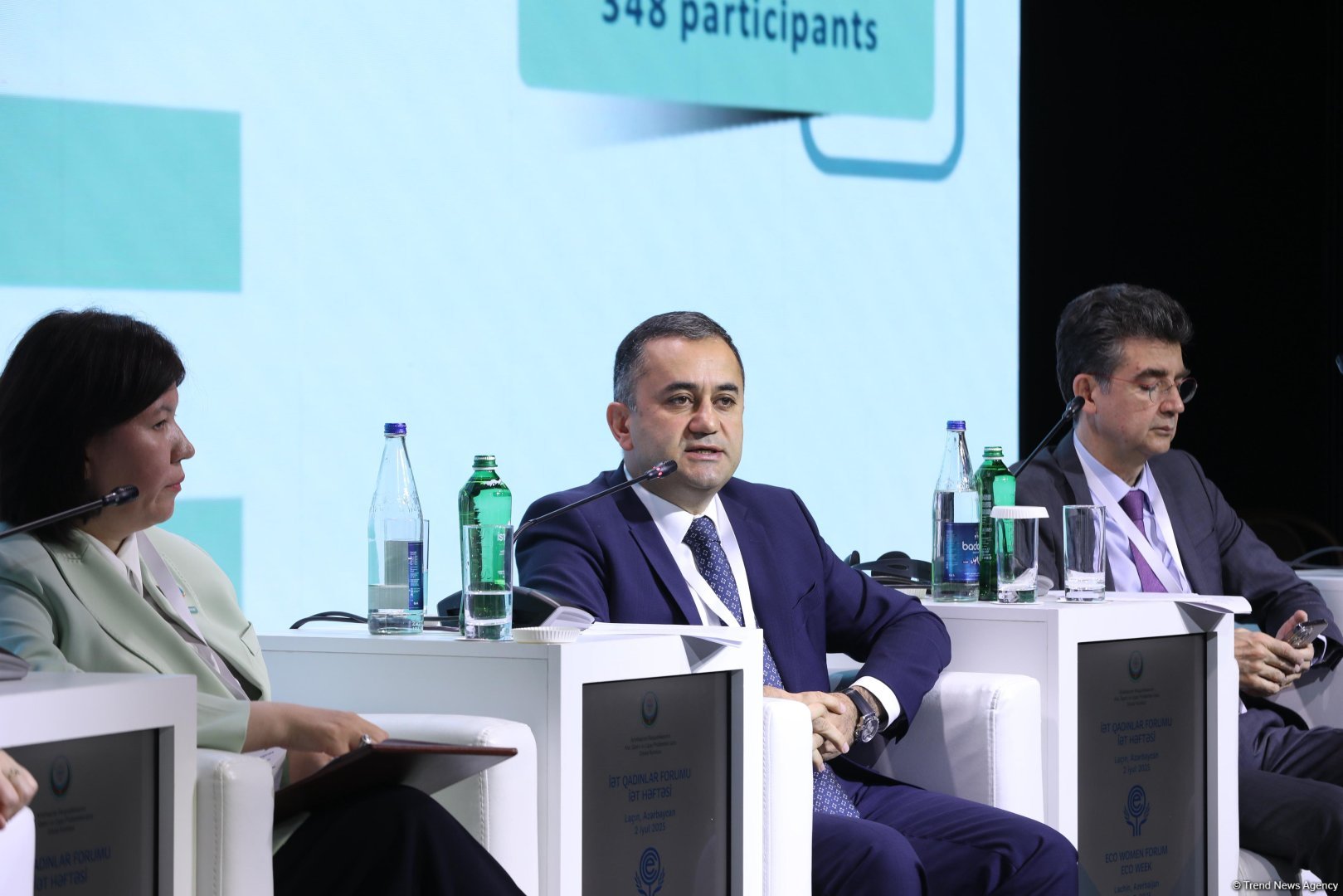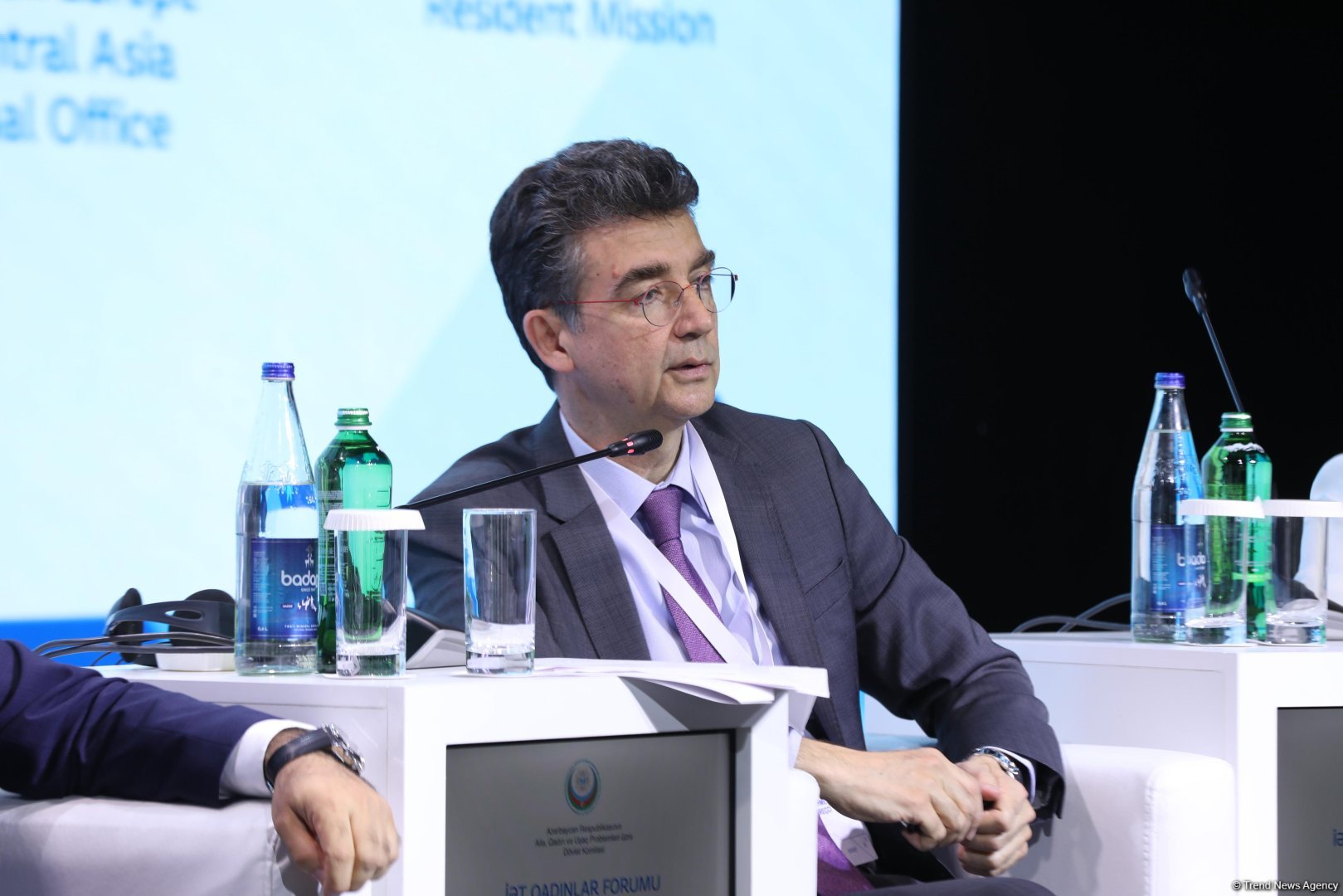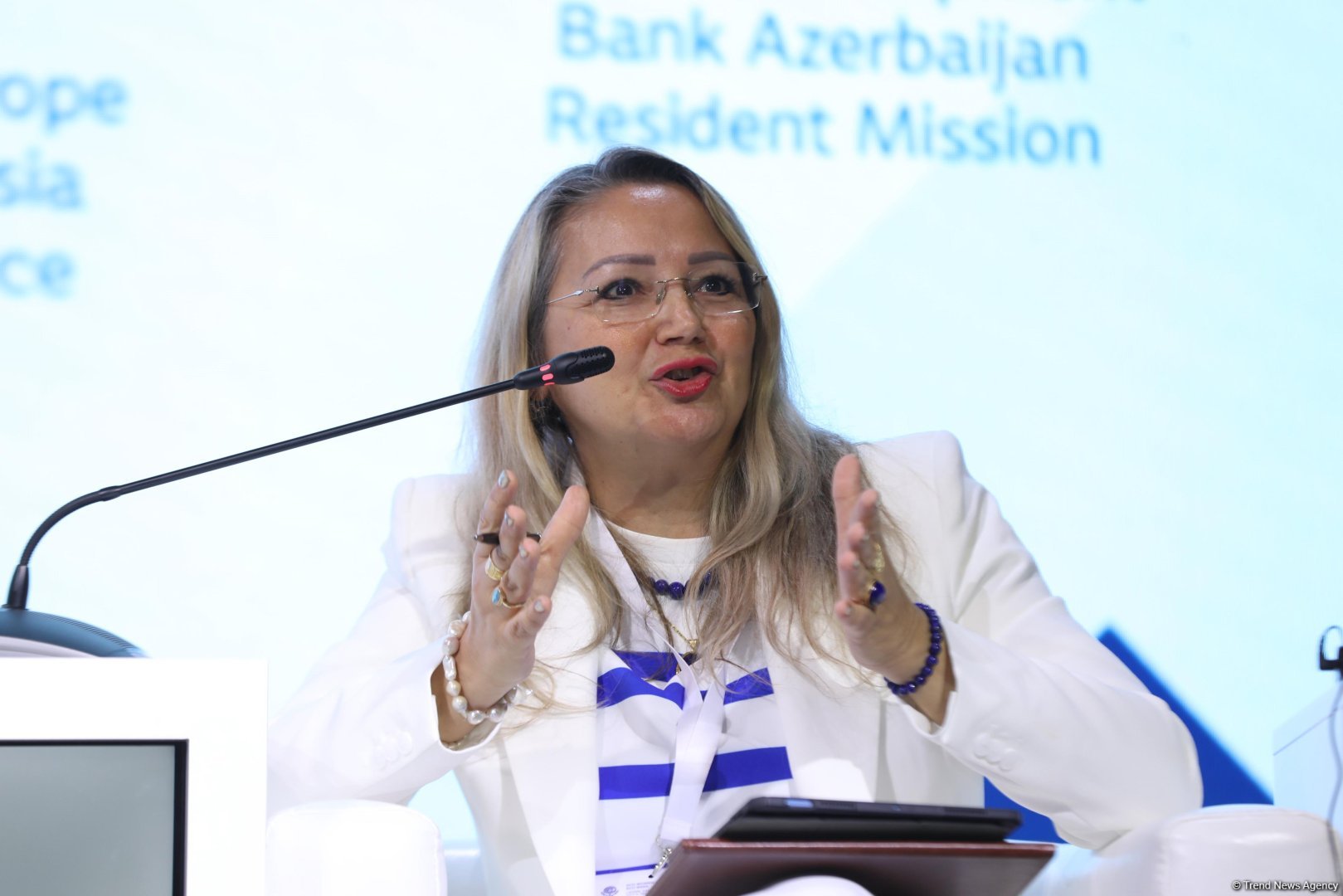LACHIN, Azerbaijan, July 2. The panel session on “The role of women in human development for climate change resilience” was held within the framework of the Women's Forum of the Economic Cooperation Organization (ECO) held in Lachin, Trend reports.
The session, moderated by Vladanka Andreeva, the UN Resident Coordinator in Azerbaijan, was attended by Leman Yenigün, Deputy Minister of Family and Social Services of Türkiye, Juldyz Suleimenova, member of the National Commission on Women and Family and Demographic Policy of the Parliament of Kazakhstan, Elnur Nasibov, Chairman of the Education Development Fund of the Ministry of Science and Education of Azerbaijan, and Mehmet Akif, Head of the ECO Institute of Education. Kirecci, UN Women's Regional Office for Europe and Central Asia, Mihaela Ionescu, Specialist in Partnership and Resource Mobilization, and Faraj Huseynbeyov, Senior Project Specialist at the Azerbaijan Office of the Asian Development Bank.
Speaking at the panel discussion, Chairman of the Education Development Fund of the Ministry of Science and Education Elnur Nasibov emphasized that the main problem in attracting women to education is financial:
"That is, families have focused their financial resources more on their sons. This is why the Education Loan Fund was established in Azerbaijan. More than 26,000 girls in Azerbaijan have benefited from education loans".
Faraj Huseynbeyov, Senior Project Specialist of the Asian Development Bank Azerbaijan Office, noted that the Asian Development Bank is working to achieve gender equality and empowerment of women in the Asia-Pacific region:
"We should always put women at the center of attention. We especially work to support women's education. We organize training courses for them in skills development, digital literacy, and technical and vocational skills. Our goal is to create quality jobs and also create opportunities for women to pursue non-traditional professions. The Asian Development Bank is lending its support to develop national green development strategies and programs to promote green skills among women. We also support women's participation in the labor market. The Asian Development Bank allocates 60 percent of its funds to gender equality," he emphasized.
Zhuldyz Suleimenova, a member of the National Commission on Women's Affairs and Family and Demographic Policy of the Parliament of Kazakhstan, noted that Kazakhstan has achieved gender equality in education and is ready to share this experience:
"In Kazakhstan, 50 percent of young women have earned a bachelor's degree, and 63 percent of women have earned a master's degree. We are shaping our specialists in the direction of the future. We cooperate with international universities, and we form specialists. Our education is based on modern technology. Steps are being taken for the participation of young girls in collective labor. We have adopted and are implementing a national program of women's entrepreneurship," she added.
The group continued the discussions after listening to other presentations.

